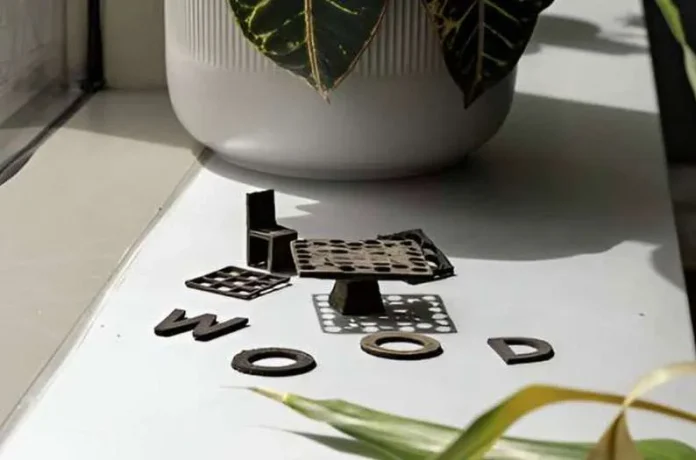Researchers have introduced an innovative concept that could potentially revolutionize the way wood waste is managed and utilized in the economy.
They have developed a unique water-based “wood ink” derived from natural components of wood, which can be utilized in 3D printing to create a wide range of wooden structures and objects.
The primary objective of this groundbreaking innovation is to promote waste reduction by offering a sustainable and eco-friendly method to upcycle and recycle wood waste.
Rather than allowing wood scraps to be discarded and contribute to environmental pollution, this technology provides a valuable opportunity to transform them into useful and customizable 3D-printed wooden items.
The formulation of the wood ink involves utilizing lignin and cellulose nanomaterials, which are key components of wood known for enhancing its mechanical properties. By incorporating these materials into the ink, the resulting 3D-printed wooden objects exhibit not only environmental benefits but also possess enhanced strength and durability.
This innovative approach to manufacturing wooden products represents a significant step towards a more sustainable and waste-reducing economy.
It not only addresses the environmental concerns associated with wood waste but also offers a practical solution to utilize this waste in a meaningful way.
The ability to create customized wooden structures using 3D printing technology further expands the potential applications of this wood ink, ranging from construction and furniture manufacturing to artistic and creative endeavors.
The development of this water-based wood ink offers a promising and sustainable solution to the challenges of wood waste management. It showcases the potential of harnessing natural materials and innovative technologies to create eco-friendly and durable wooden products, contributing to a more environmentally conscious and waste-efficient economy.


